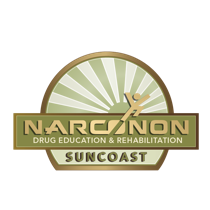Veterans and Substance Abuse—
A Simple Guide on
How to Help a Veteran Struggling with Drugs or Alcohol

Veterans make up a large percentage of individuals who suffer from substance abuse. Many veterans arrive home injured, suffering from PTSD and start to lack purpose. Finding jobs can prove difficult for injured and even non-injured veterans after their commitment to the military is fulfilled. The lack of jobs and ability to be productive coupled with mental and emotional trauma and physical injuries can be too much to bear for some vets. This is a breeding ground for substance abuse and veterans are overtaken by their addictions every day. Unfortunately, VA hospitals and associations fail to deliver proper and appropriate treatment to our veterans. They are plagued by huge waiting lists and less-than-optimal rehabilitation solutions.
This information provided is to help a veteran stricken with addiction and their families to combat it with all tools available.
All soldiers are impacted by their experience during combat. Some may look at it as a way to mature and build character, others are negatively impacted by their experience. While illegal drug use is low in the armed forces, alcohol and prescription drug abuse is at an all-time high.
How to Recognize Prescription Drug Abuse
- Drowsiness
- Confusion
- Poor coordination
- Problems with memory
- Anxiety
- High blood pressure
- Slowed breathing
- Constricted pupils
- Lethargy
- Lack of appetite
- Mood swings
- Behavioral changes
If You Suspect a Veteran Is Struggling with Prescription Drug Abuse, Visit:
https://www.drugabuse.gov/publications/drugfacts/substance-abuse-in-military
Commonly Abused Drugs by Veterans
According to the 2013 National Survey on Drug Use and Health, 1.5 million veterans aged 17 or older (6.6 percent of this population) had a substance use disorder in the past year.2 Overall, about 1 in 15 veterans had a past year substance use disorder, whereas the national average among persons aged 17 or older was about 1 in 11, or 8.6 percent.
Substance use disorder among veterans aged 17 or older, by era of service: 2013

http://www.samhsa.gov/data/sites/default/files/report_1969/Spotlight-1969.html
Homelessness and Veterans
In the U.S., nearly 17% of the homeless population is comprised of veterans. Many veterans are disabled, addicted, alone and live below the poverty level. What this leads to is a dramatic increase in the number of veterans who can’t work or properly take care of themselves, which leads them to sleeping in the streets. Currently, there are nearly 76,000 homeless veterans who have no place to live.
Some of the Causes of Veteran Homelessness
- Being disabled
- Living below the poverty line
- Living alone and isolated after discharge
- Addiction
- Spending more than 50% of earned wages on rent and other bills
For More Information on Veteran Homelessness Visit:
http://www.greendoors.org/facts/veteran-homelessness.php
http://nchv.org/index.php/news/media/background_and_statistics/
For Information on Housing Assistance for Veterans:
http://www.va.gov/homeless/housing.asp
http://www.veteransinc.org/services/housing-programs/
http://portal.hud.gov/hudportal/HUD?src=/program_offices/public_indian_housing/programs/hcv/vash
Why Do Some Veterans Suffer in Silence?
After giving everything and serving their country, many Veterans suffer with their addictions silently, away from everyone to not be stigmatized as an addict. They could be dishonorably discharged from the military and have permanent records stating their substance abuse or even face criminal charges if caught using drugs while in the line of duty. What this creates is a code of silence among military personnel as well as secrecy as to the battle they are fighting, often alone.
Here are additional resources to help a struggling Vet:
https://www.drugabuse.gov/publications/drugfacts/substance-abuse-in-military
http://nvf.org/veteran-substance-abuse-statistics/
https://www.ncadd.org/about-addiction/drugs/veterans-and-drugs


